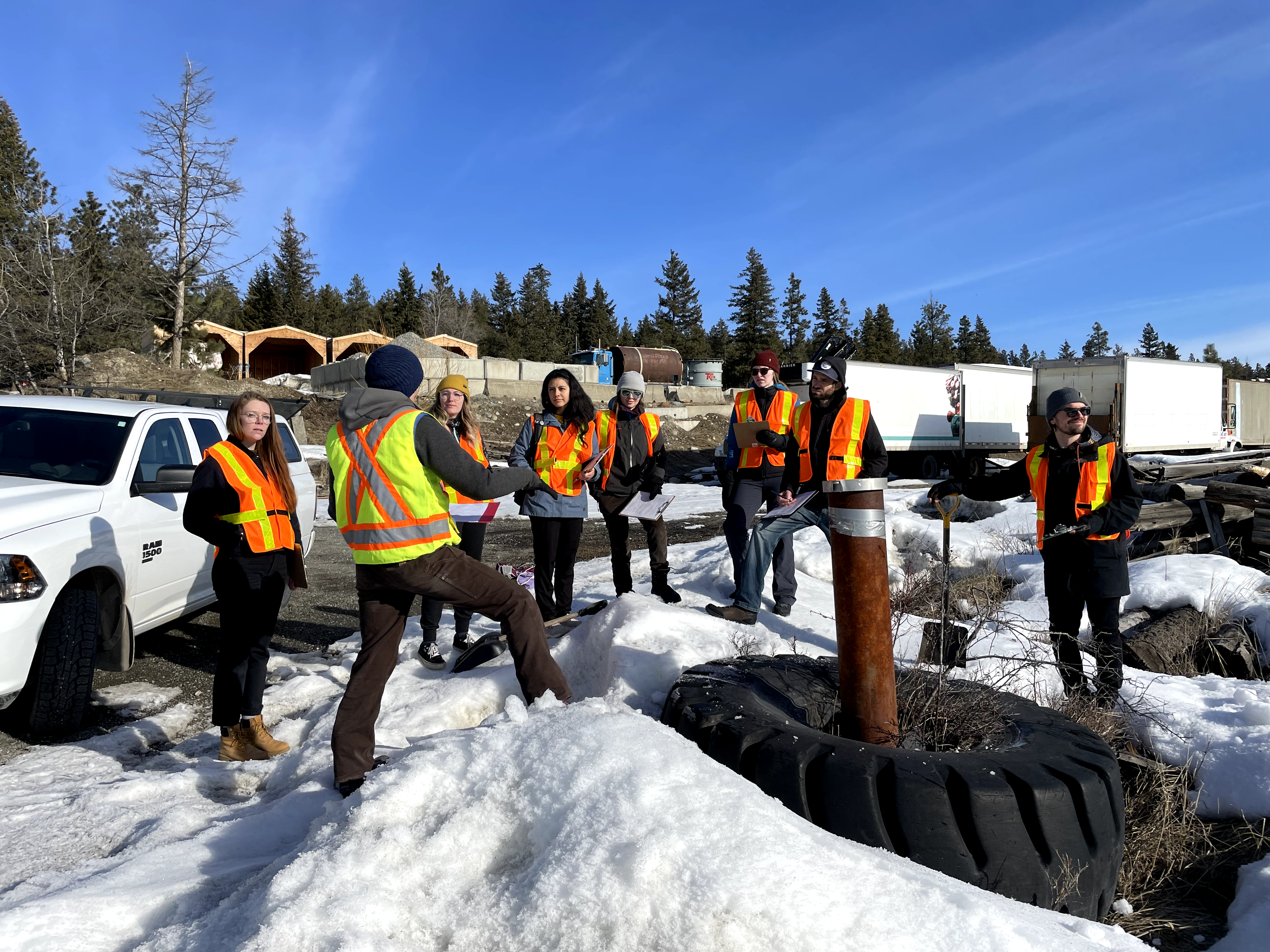Equipping college students to tap into the groundwater field

Living Lakes Canada’s Carol Luttmer guides two college students on how to measure water levels in the well. COTR Photo
Did you know that approximately 25% of people living in Canada rely on groundwater for drinking water? Groundwater is a critical freshwater source for both communities and wildlife but it remains poorly understood. An increase in groundwater monitoring is needed for sustainable water management. To this end, a recent Living Lakes Canada lab for college students encouraged an exploration of groundwater, both as an important freshwater source and a professional field.
Under blue skies and outfitted with bright orange safety vests, seven students from the College of the Rockies gathered around a municipal well in Cranbrook, B.C. Guided by Living Lakes Canada’s Carol Luttmer, the students spent the day learning how wells are constructed, how to monitor water levels, what impacts groundwater levels, and how climate and groundwater are connected.
“This particular lab helped me put into practice the skills learned in class and expanded my learning with the input of professional experience. These labs develop every student’s curiosity for making a meaningful impact out in the field,” said Gala Reul Orozpe, one of the Associate of Science in Environmental Science students.
The hands-on experience in monitoring groundwater levels provided the students with employable skills that will help secure local summer employment in their field. Katie Burles, College of the Rockies faculty, applied a wider lens to the experience.
“This lab not only provided my students with practical skills but also presented an opportunity to learn more about diversified career paths that could lead to long-term employment within their communities,” she said.
Although students focused on the well penetrating the ground beneath their feet, they also learned how it’s part of a larger network. Living Lakes Canada’s Columbia Basin Groundwater Monitoring Program is comprised of 32 Volunteer Observation Wells, including the City of Cranbrook well.
By tracking changes in groundwater levels seasonally and annually, this network places a magnifying glass on how climate change, land use changes and water consumption impact this precious freshwater source.
As the program’s Data & Field Manager, Carol is fostering connections with a growing number of post-secondary institutions in the Columbia Basin to raise groundwater awareness, increase water literacy and build capacity in the groundwater field.
“It was great to be involved in this demonstration and hands-on field opportunity for students from the College of the Rockies. The students are bright, inquisitive and a pleasure to work with,” said Carol. “This is the first of what we hope will be a longstanding relationship with the College, where Living Lakes Canada helps to provide real-life experiences in environmental monitoring.”
We are grateful to the Community Foundation of the Kootenay Rockies for their financial support towards this educational experience.






